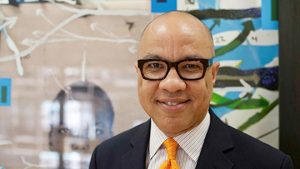Planning for a $3 billion comprehensive campaign at the University of North Carolina at Chapel Hill (UNC), an effort that had been expected to begin its quiet phase next summer, likely will be put on hold, for the third time in four years. Fueling the new delay is UNC’s chancellor announcing he would step down at the end of the school year and the school’s vice chancellor for university advancement quitting under pressure.
“They’re going to need to put it off,” said Karla Williams, a national fundraising consultant based in Charlotte, N.C. “The campaign has to be owned by the chancellor and his or her board. That’s where the ownership for a major initiative rests. If it doesn’t rest there, it’s going to fail.”
The latest turn in the on-again, off-again campaign came when UNC Chancellor Holden Thorp announced he would leave his job at the end of the school year and return to the life of a professor. That move came a week after Matt Kupec, the school’s long-time vice chancellor for university advancement, resigned in the wake of disclosures he had taken at least 25 personal trips at the university’s expense with Tami Hansbrough, a fundraiser at the school and the mother of its former star basketball player Tyler Hansbrough.
The NCAA is investigating the trips and the hiring of a basketball player’s family. Hansbrough reportedly helped to raise $5 million for the university’s dental school foundation and money for other programs. She resigned after questions arose about spending on trips she took with Kupec.
She and Kupec, who both are divorced, have been in a relationship. Kupec had pushed for UNC to hire Hansbrough and Thorp knew about her hiring and about Kupec’s role in it, according to published reports. Williams said the resignations of Thorp and Kupec represent a big challenge and a big opportunity for UNC.
“Universities, like all public institutions, are held to higher standards of behavior, when it comes to asking [donors] to give their money to the university,” she said. “It won’t take a lot for the board and donors to embrace new leaders, as long as the search is exhaustive. It will be a new kind of leader, no doubt a good thing for the university. New leadership brings new life. It’s inevitable.”
But people at and close to UNC said it has a lot of work to do to prepare its fundraising operation and systems to take on a $3-billion campaign. Four years ago, UNC was set to launch a multi-billion-dollar campaign when the economy crashed, so the school put the campaign on hold. Last spring, Thorp and Kupec asked the board of trustees to approve launching the campaign’s quiet phase this past July, but the board rejected the proposal, concluding “you’re not ready, you don’t have a strategic plan, you don’t have vision, spend another year working on it,” said someone close to UNC who asked not to be identified.
Kupec, who was a star quarterback at UNC and has worked in its advancement operation for 20 years, is known as a hands-on fundraiser who enjoys working with donors but does not like managing. “He felt managers were a waste of time and all you needed to do was go out and ask for money,” the person close to the school said.
Under Kupec’s watch, the school raised billions of dollars but it also has just begun wealth screening, or collecting publicly available data on the capacity of donors to give, the person close to UNC said. Kupec could not be reached for comment.
“If I had been planning to announce in July, that should have been happening a year or two before that,” that person said. “I’m a little shocked they haven’t done that, whether in a campaign or not. It’s like getting an oil change. Every so often you do it.”
And recently, UNC reorganized its unit of regional major gift officers who, instead of cultivating major donors, now will prospect for major donors and then refer them to development officers in schools, departments and other units that focus on issues those donors care about, said Scott Ragland, director of development communications at UNC.
The person close to UNC said the kind of development work those major gift officers have done is critical for a school that plans to launch a multi-billion-dollar campaign in which the biggest gift or handful of biggest gifts will total hundreds of millions of dollars.
“My gut is they don’t know their prospect pool enough to do a $3-billion campaign,” the person said.
Carol O’Brien, a consultant in Durham, N.C., who has advised UNC in the past and currently is working with one of its programs, said the school will need an “objective assessment of their internal capacity” to run a campaign, including the entire fundraising infrastructure, budget, personnel and systems, including information technology and prospect research.
And when it comes time to look for a new vice chancellor, she said, the school should hire an executive search firm and work with a high-level committee that includes both university academic leaders and volunteer leaders to develop a job description that reflects the complexity of fundraising at a major university.
“Most campaigns now have large areas that involve interdisciplinary work, and research projects, and it takes someone who is conversant with these academic programs and priorities to be effective in high-level giving,” said O’Brien, a former director of development at Cornell University who has worked as a consultant on multi-billion-dollar campaigns at Duke, Cornell, Harvard and the University of Pennsylvania.
The search firm also should find ways to talk to some of UNC’s top donors “to get a sense of the relationship they would like to have with this person,” she said.
Chief fundraising officers at universities, she said, “need to work effectively with many people inside and outside the university, and the search process needs to ensure that the candidates and ultimately the person selected are sufficiently broadly gauged to be able to do that.” Williams said the critical job now is for the board of trustees to find a new chancellor who in turn will need to “forge a new agenda and new relationships and do a campaign that has their marks on it.”
The UNC board will need to reassure donors in the wake of the recent upheaval that the campaign “will stand on its own merit,” Williams said. “Donors are the ones that really matter,” she said. “True philanthropy is based on value association. If a university has not upheld and stood up for the kinds of values that the donors of that institution have shared in the past, such as integrity, if the veil of integrity has been broken, donors will say, ‘I’m no longer in sync because our values apparently are not the same.’”
So while loyal donors might still make a “token gift to validate their relationship to the university,” she said, “if their pride has been affected they’re going to withhold a true investment, a large gift. They’re in a wait-and-see mode.”
Richard Krasno, executive director of the William R. Kenan Jr. Charitable Trust, which has given more than $100 million to UNC, said donors “need to consider the larger picture and be proud of the excellence that this fine university has achieved over a long period of time, and continue to be supportive.”
Paul Fulton, a member of the board of governors for the 17-campus UNC system and former co-chair of a campaign at UNC that ended in 2008 and raised $3.3 billion, said the UNC’s fundraising and development office are in “really good shape with a good organization.”
In the fiscal year that ended June 30, UNC received $287.4 million in gifts, its second-best year ever. “Matt was good and we’ll miss him,” said Fulton, a former president of Sara Lee Corp. “But, what he did was just bad judgment.”
A key question now, he said, is whether Thorp should hire a new vice chancellor or leave that decision to his own successor. O’Brien said the likely course would be to conduct the chancellor search first. “That will give them the best opportunity,” she said, “to move ahead with the leadership transition and campaign planning.” NPT
Todd Cohen publishes Philanthropy North Carolina at www.philnc.org and is a contributor to The NonProfit Times.











